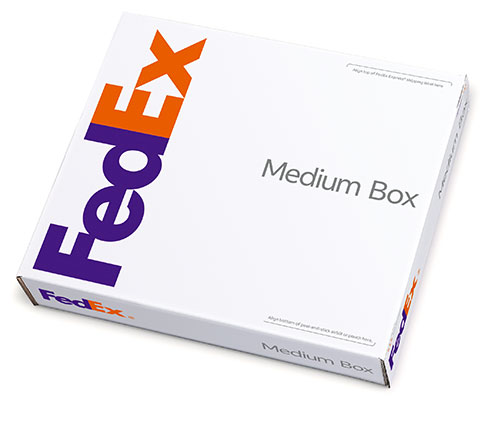Hey guys,
Does FedEx play any limits on insuring collectibles? Do they have any specific policies I should know about before insuring with them?
Hey guys,
Does FedEx play any limits on insuring collectibles? Do they have any specific policies I should know about before insuring with them?
I think you should insure your items. The chances that an employee singles you out is very low. These are people who are just trying to get their job done so they can go home. Unless you live in a sketchy neighborhood with people constantly stealing from each other, I don’t think you should worry too much.
PS: FedEX and other companies regularly ship items that are far more expensive than $5,000. They won’t even blink an eye.
Personally, I never insure anything. Insurance is profitable for the insurer – meaning that, on average, the insuree is losing money by purchasing insurance.
Insurance does make sense, though, in situations where it’s an amount of money at stake that you can’t afford to lose.
I rarely insure my packages, for multiple reasons. If anyone has contradictory information feel free to correct me, but here’s my understanding about how package insurance through major carriers works:
That being said, there are some situations where it’s a great idea:
When I’m shipping something, my “insurance” is usually just shipping via the fastest and most secure method. If that’s USPS, it’s Priority Mail Express, Registered Mail if it’s an amount I can’t afford to lose. Private carrier, I’ll use priority overnight.
Agree with others. Personally for any expensive card say over $1000, I really like the Fedex medium-size boxes. I find these are much less likely to get lost in the mail than say a bubble mailer or other slim/small package can. I would sooner pay more for the box dimensions than try and deal with insurance claims.

To give some perspective, when I worked in my office I would see mail carriers haul in tons of packages and I literally picked up 3 of them on my way back from work before the mail carrier got on the elevator because they fell off the mail trolley thing. I really believe this is how some small packages get lost at times. The guy didn’t even think to look back for any packages that fell off his cart.
Get it insured. Insurance is one of those things that you would kick yourself for not having in the event that you need it. I’ve shipped jewelry and watches out for repair through FedEx and never felt unsafe about the staff knowing what I was insuring the package for. Better safe than sorry!
Service_Guide_2022.pdf (fedex.com)
Page 129 section F. Dang.
Shipments (packages or freight) containing all or part of the following items are
limited to a maximum declared value of US$1,000:
If FedEX won’t insure it, you can always insure through a different shipping company. I’m not sure if you are U.S. based, but USPS has no limit on insurance. I’ve used them for a long time and they’ve been highly dependable for me.
Fedex allows up to 100k for declared value. I don’t know what protection that provides, but when I had a 18k package take longer than normal, and the workers were sweating bullets because of the declared value.
Also the white medium box @jabby shared is my standard. I agree with everything they mentioned!
That’s a great point! I typically ship my PSA orders in relatively small boxes but I think I’m gonna start sending in bigger boxes just to minimize the chance it could be lost or stolen.
Do you buy the box in bulk online? Or is it in store only?
Once you create a Fedex account, you can order them. My Fedex store usually has them as well, but I usually order through the website:
You can use secursus for cheaper insurance rates over 5k too
I would ensure that. BUT in general, I don’t ensure. Rusty gave me a great idea that, depending on your situation and risk threshold, might help you:
If you take the money you’d spend on insurance, and put it aside, when you finally lose something, it usually balances out, or you come out ahead. Now, I sell things from 20-250$, generally, so insurance is NBD. If you generally don’t sell much in this price range, OR have just started and can’t afford the hit, then maybe the method I just mentioned is a bad idea. Just my thought process, I learned too much in pre-law to give professional advice.
Piggybacking on this topic, is there a threshold where it makes sense to send something registered mail?
I’ve been sheepish about sending some high value cards in the mail because I bought them in 2016 and I would be ruined if I ever lost them.
I personally never use registered mail. Its slow and the tracking doesn’t consistently update.
I think the overall standard for high end is fedex overnight. Another option is using a vault service that provides an insured label. People who submit to me from their PWCC vault use that service and its great peace of mind.
The trade-off for the slow pace of registered mail is that it’s near-impossible to lose. It’s kept in locked areas during postal processing, and everyone who handles it needs to sign off on it so there’s a clear custody chain.
If you have to ship something incredibly valuable and there’s no other insurance option available like the PWCC insured label, then registered may be the best way to go.